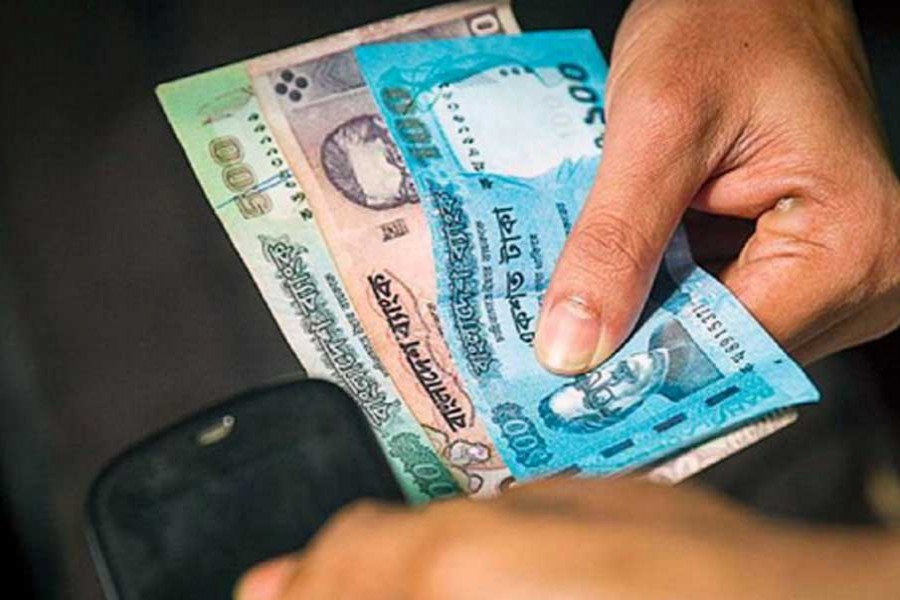Digital and mobile financial services facilitate financial inclusion

Published :
Updated :

Having access to financial services helps drive economic development. People can escape poverty through financial services that will help them to invest properly in their health, education, and businesses. Financial services are also important for people who need to work through emergencies, such as sudden illnesses, that can push them into financial ruins.
The current situation of financial services in Bangladesh is that there are 57 banks with more than 10,000 branches with three more banks receiving license recently. However, this is still considered as not enough by many financial experts and economists to cover around 164.7 million people. So, regarding the reach of the banking services, the central bank of Bangladesh introduced a guideline with an aim to provide banking services for the entire population of the country. As per the guideline, 50 per cent of the new branches opened by banks in a calendar year should be established in rural areas.
However, many banks might hesitate to invest in rural areas as it is not cost-efficient. It is also very difficult for rural, especially the illiterate population, to take advantage of traditional banking that requires a lot of paperwork. Moreover, most of the banks' customers live in urban areas. This scenario has led to the financial gap for the country. To fill this gap, mobile financial services (MFS) was launched between the time range of 2010-2011 by Trust Bank, Dutch Bangla Bank (Rocket), and Brac Bank (bKash).
Since the launch of MFS, it has proved to be the finest integration of finance and technology in Bangladesh. MFS has significantly contributed to rural-urban fund flow as efforts are being made to popularise mobile money as a viable alternative to physical and plastic money. Further growth of MFS would not only ensure higher penetration at the 'bottom of the pyramid' market but also contribute to the growth of online e-commerce transactions.
However, MFS in Bangladesh is yet to become a conduit for formal banking products such as savings and credit products. Most of the users use it for payment-related services. Cash-in and cash-out transactions are dominant, followed by person-to-person (P2P) transaction. Only 2 per cent of the 26.9 million accounts have regular banking accounts.
Consequently, this places 50 per cent of the country's population to remain unbanked. So, what can be done to fulfil the gap and increase the financial inclusion of the country? Interoperability can be introduced in the country. Interoperability is the ability of different systems to connect with one another. Interoperability among the digital payment channels would ensure clients' benefits, facilitate competition based on product innovation and boost the growth of a digital finance ecosystem.
The partnership of an MFS with a bank can be considered as a crucial phase for financial inclusion. This gives hope that soon, interoperability will be introduced in the country. Most countries that are successful in MFS run a hybrid model where banks, mobile operators and other stakeholders can participate.
Then, financial literacy is another key to achieving optimum inclusion, and Bangladesh needs to run a very conclusive programme on that. The country's financial market has remained underutilised due to the information gap between consumers and financial service providers arising out of financial illiteracy. As a result, consumers are not able to make the right decisions on their finance. Particularly in rural areas, consumers are not well informed of their rights and options. A lack of financial literacy or financial illiteracy may drive people to make poor financial decisions that can have a negative impact on the economy.
On the other hand, digital financial service (DFS) can complete the cycle of financial inclusion. The goal of financial services made available via digital platforms is to contribute to poverty reduction and to contribute to the financial inclusion objectives of Bangladesh. Greater digital financial services channelled to rural and poor communities can improve access to finance for bank customers in rural and poor communities who cannot conveniently access banks located in the formal sector due to poor transportation networks and long queuing hours in banking halls. And it will reduce bank customers' presence in bank branches and reduce cost because a bank would cost-efficiently maintain fewer branches, and the lower costs would have positive effects for bank profitability and financial inclusion in rural and poor communities.
Moreover, easy-to-use digital finance can provide a more convenient platform for individuals to carry out basic financial transactions including payments for electricity, water supply, money transfer to family and friends, etc. If digital finance platforms are easy-to-use, users of digital finance services can help inform and persuade their peers in the formal and informal (rural) sector to take advantage of DFS, leading to greater number of individuals using digital finance thereby leading to greater financial inclusion.
Noting the change digital finance can bring to the economy, Bangladesh Post Office has recently introduced Nagad, a DFS platform. Nagad is a digital service which facilitates customers' daily financial needs like cash in, cash out, send money, mobile recharge, etc. A successful branchless banking service, like MFS and DFS, can help materialise the dream of full financial inclusion of the people.
The government and corporations of Bangladesh have already started taking steps towards financial inclusion. Such initiatives are giving hope for a better future through a powerful economy.
Taufique Hossain is Ph.D. Candidate and Academic Tutor in Marketing at the University of Wollongong, Australia, and a former lecturer in Marketing at North South University, Bangladesh.


 For all latest news, follow The Financial Express Google News channel.
For all latest news, follow The Financial Express Google News channel.